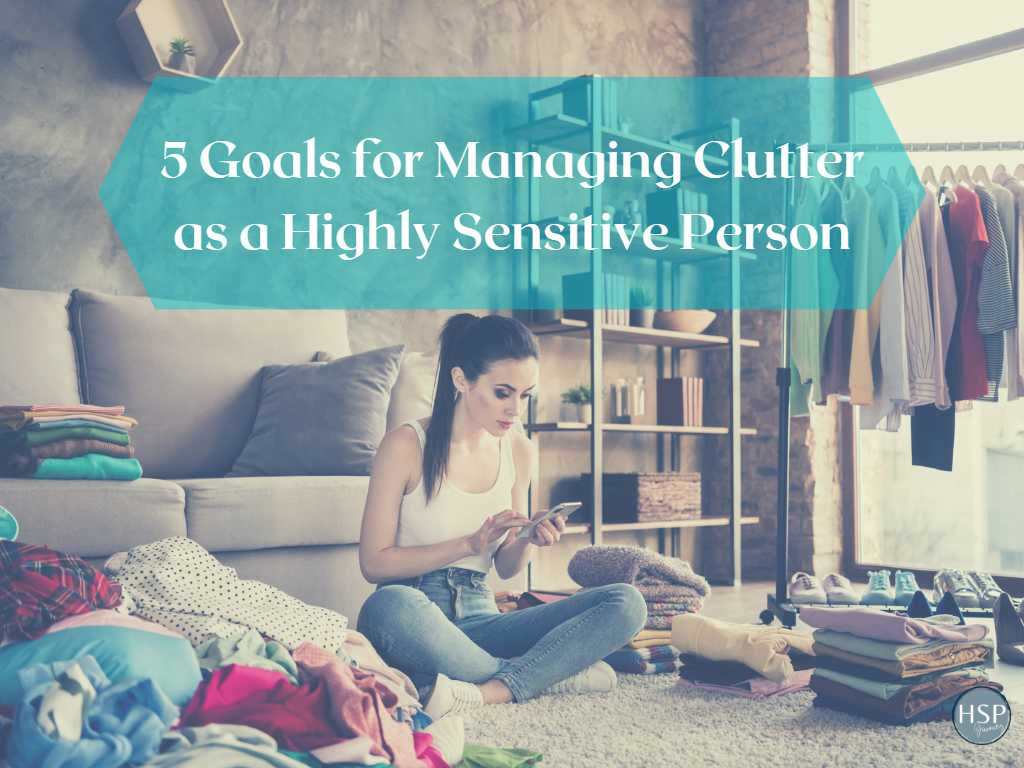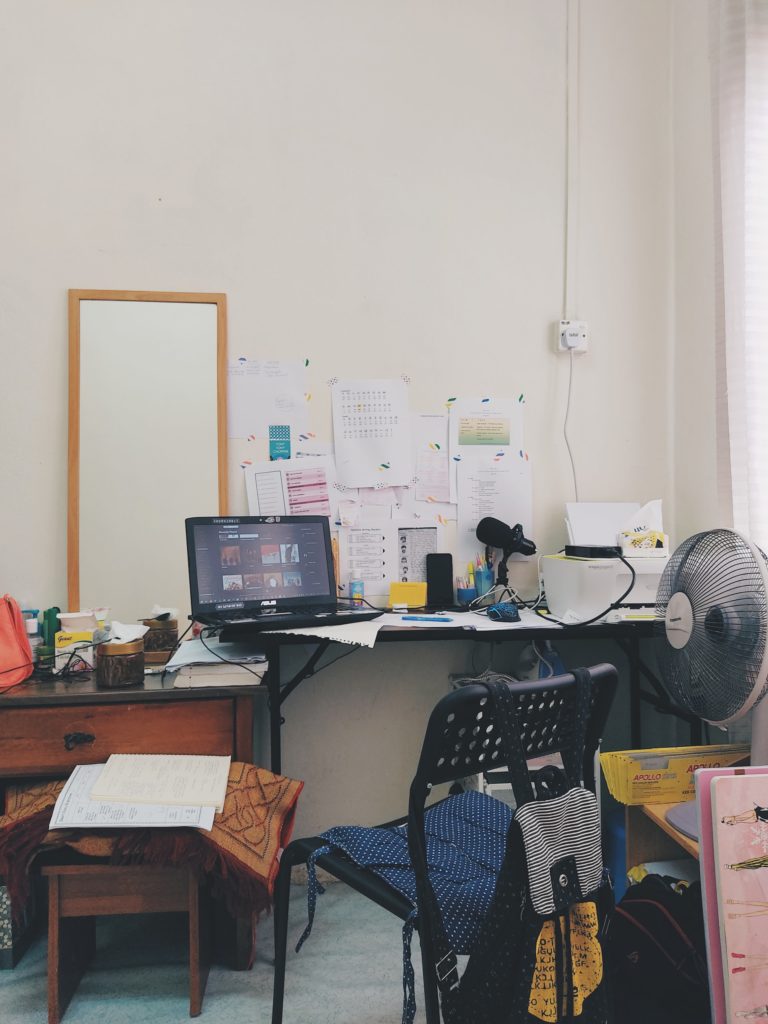Because you’re sensitive (which is an incredible superpower) you know that you’re unique, gifted, and an excellent addition to your circle of family and friends. You love helping others and exploring all that life has to offer while navigating the minefield of Sensory Processing Sensitivity (SPS), the clinical term for the Highly Sensitive Person. You might also have noticed that your environment matters a lot and that managing clutter as a Highly Sensitive Person is practically a full-time job.
There’s something about clutter and its accumulation that signifies stagnation, frustration, and energy drains. A pile of magazines unread; a stack of bills unpaid; forms that need filling out; old books unread on shelves; tools that don’t have a proper place; laundry in baskets waiting to be folded and put away–your mother told you that there’s power in making up your bed, cleaning your desk, vacuuming in the corners, and dealing with your ‘crap.’ She’s right, you know (just ask my four kids). In fact, clutter can cause energy blocks, feelings of dissatisfaction, and general melancholy that has a simple solution.

Table of Contents
What is the psychological impact of clutter? (6 Issues)
Before we offer help with exploring six goals for managing clutter as a Highly Sensitive Person, we first need to go over the reasons why there is a significant psychological impact of clutter on HSPs.
Accumulating clutter can lead to several issues, including:
Clutter Issue #1 – Increased Stress and Anxiety
Cluttered environments can be overwhelming and create a feeling of chaos and disorder, which can lead to increased stress and anxiety.
Clutter Issue #2 – Reduced Productivity and Focus
Clutter can be a distraction and make it difficult to focus on important tasks. It can also make it harder to find things you need, leading to wasted time and reduced productivity.
Clutter Issue #3 – Safety Hazards
Cluttered spaces can be hazardous, especially if items are not put away properly. Tripping, falling, or other accidents can occur if clutter is blocking walkways or if heavy objects are stacked improperly.
Clutter Issue #4 – Health Risks
Clutter can provide a breeding ground for dust, mold, and other allergens that can trigger health issues such as allergies and respiratory problems.
Clutter Issue #5 – Financial Costs
Accumulating clutter can result in unnecessary spending on duplicate items or replacement costs for items that are lost or damaged.
Clutter Issue #6 – Relationship Strain
Clutter can cause tension between family members or roommates with different preferences for cleanliness and organization.
Overall, accumulating clutter can have negative consequences for both physical and mental health and personal and professional success. It’s important to regularly declutter and organize your space to maintain a healthy and functional living and working environment.

Why is clutter harder on HSPs?
For HSPs specifically, there are even greater challenges for living in a cluttered environment, the most prevalent being general overwhelm and increased anxiety. We HSPs tend to get easily overwhelmed by our environments because of the extra mirror neurons in our brains that take in more information that the average joe.
HSPs are constantly absorbing information from their environments, so where we live and work matters even more. Having a calm, soothing, peaceful, and (yes, organized) environment can make or break one’s outlook and emotional state.
What are some goals to get rid of clutter? (6 Goals)
Setting goals is an important step in getting rid of clutter. Here are five goals that can help you to tackle your clutter:
Clutter Goal #1 – Identify the Problem Areas
Start by identifying the areas of your home or workspace that are most cluttered. This could be a particular room, closet, or even a desk. Once you have identified the problem areas, you can prioritize which areas to tackle first.
Clutter goal #2 – Set a Timeframe
Decide on a timeframe for completing your decluttering project. This will help you to stay focused and motivated. You could set a goal to declutter one room each weekend or to spend 30 minutes each day decluttering a particular area.
Clutter goal #3 – Create a Plan
Develop a plan for how you will approach each area. This could include sorting items into categories, such as keep, donate, or discard. It’s also helpful to have a plan for how you will dispose of items you no longer need, such as scheduling a donation pickup or arranging for bulk trash pickup.
clutter goal #4 – Enlist Support
If you’re feeling overwhelmed by the task of decluttering, it can be helpful to enlist the support of friends or family members (this is especially true for HSPs). Having someone to help you sort through items and make decisions can make the process less stressful.
clutter goal #5 – Celebrate Progress
Celebrate your progress along the way. Take time to appreciate the changes you’re making and the benefits of a decluttered space, such as increased productivity or reduced stress.
By setting specific goals and creating a plan for decluttering, you can successfully tackle clutter and create a more organized and functional living or workspace. Lastly, setting a brief time at the beginning or end of each day to quickly reset your workspace, bedroom, or kitchen can go a long way to maintaining a sense of order and calm once you’ve gone through these decluttering steps. You’re on your way!
Be sensitive, be free
*This post contains affiliate links and I will be compensated if you make a purchase after clicking on my links*





[…] hang laundry and rugs outside to air, and let the breeze clear out dust and stale air. Whether cleaning or organizing, there seems to be a symbolic quality to the clearing-out process. Perhaps there is a universal […]